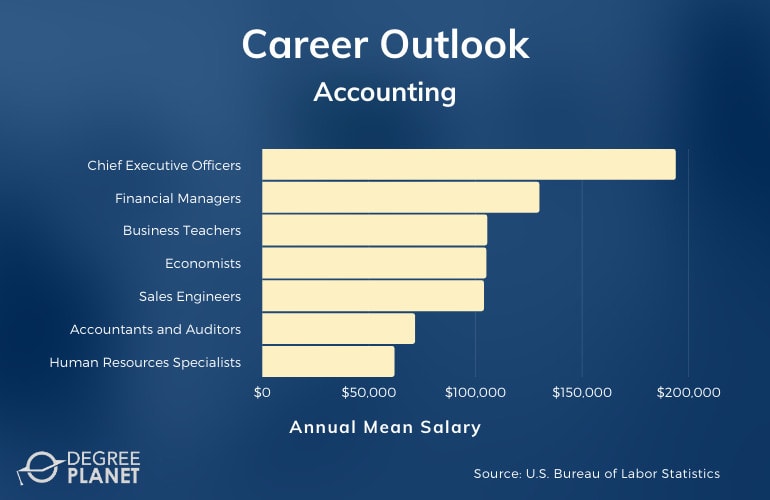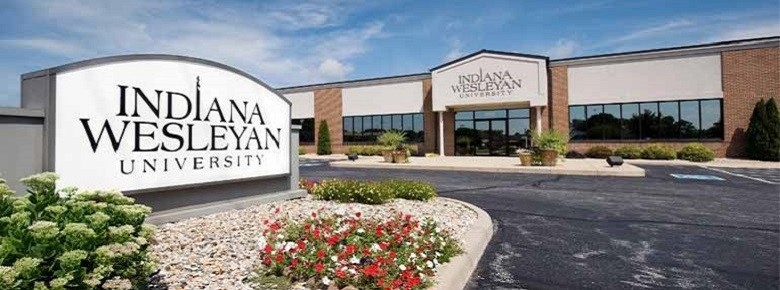Getting a PhD in accounting online may help you maximize your career potential in the world of finance.

Editorial Listing ShortCode:
The flexible doctoral programs that can be found online may be much easier to fit into your busy schedule than traditional, campus-based ones. Additionally, since there are multiple types of PhDs to earn, you may customize your learning experience in online doctoral programs into something that aligns with your unique and specific career goals.
PhD in Accounting Online Programs

An accounting degree can help prepare you for a career with numbers. Depending on your particular talents, this might lead to employment with a bank, corporation, financial firm, insurance company or government think tank. You might also work for a number of private businesses. Every industry needs people to balance their books.
On the doctorate level, an accounting degree online can help qualify you for all of the usual opportunities and then some. Not only can it help you build a solid foundation in the basics, but it can also help you learn high-level skills for technical or specialized roles.
There are a number of ways to earn a doctorate in accountancy:
- Doctor of Philosophy (PhD) in Accounting
- Doctor of Philosophy (PhD) in Business Management with an emphasis in accounting
- Doctor of Business Administration (DBA) in Accounting
Regardless of the path that you choose, it isn’t easy to earn a doctoral degree in accounting. However, it may be worth the extra sweat when you realize the extent of its earning potential and industry growth.
Accounting Careers & Salaries

According to the Bureau of Labor Statistics, accountants and auditors have a median annual salary of $73,560 per year.
This includes both accounting and non-accounting specializations, so to get a better, more accurate look at potential salaries for an accounting PhD, you should look at individual careers:
| Careers | Annual Median Salary |
| Chief Executive Officers | $185,950 |
| Financial Managers | $134,180 |
| Sales Engineers | $108,830 |
| Economists | $108,350 |
| Business Teachers | $88,010 |
| Accountants and Auditors | $73,560 |
| Human Resources Specialists | $63,490 |
Keep in mind that the full salary ranges for these careers can be much broader than the averages. For example, while the median salary for Business Teachers with a PhD is $88,010 per year, its full range is $39,720 – $202,080 per year.
Accounting Specializations & Concentrations

There are many roads to a doctorate degree in accounting, and one of the options that you’ll have is whether or not to specialize. Do you want a general accounting degree that can be applied to a wide range of jobs, or would you prefer to learn unique, high-level skills for particular roles?
Editorial Listing ShortCode:
Here are a few areas of study that you might find emphasized in accounting PhDs:
- Accounting Information Systems: Accounting information systems (AIS) are where companies store, track, manage and process their digital data. This concentration can help you understand the technology behind them.
- Audit Accounting: Audits can be a major part of everything from tax work to business management within a company, but they’ll require skills in math, finance, technology and more.
- Forensic Accounting: Forensic accounting is a sub-specialty of accounting that involves the investigation of people or businesses. It frequently but not always has crossover with audit accounting.
- Managerial Accounting: Combining elements of business, finance, administration and even psychology, managerial accounting can be a valuable concentration for future business leaders.
- Public Accounting: Public accounting is any kind of accounting work that isn’t done for the private sector. This is a common field of study for certified public accountants (CPAs).
- Taxation: A taxation specialization requires classes on law, business, economics, ethics and financial management. It can also have further specialties-within-specialties depending on the tax field that you occupy.
There’s no right or wrong answer when it comes to the question of specializing your degree. Consider your skills and career goals, and make a decision that aligns with your ambitions.
Choosing a Doctorate in Accounting Degree

Unlike choosing, let’s say an online associate’s in accounting, choosing a graduate program is a major decision. You could be looking at anywhere from 3 – 7 years of additional schooling, and that’s on top of juggling other work-life responsibilities as a busy adult, so you’ll want to be sure of your choice before you commit.
The first thing to consider is the value of your school. Is it accredited? Does it offer online doctoral degree programs? Does it have worthwhile research opportunities? Can you leverage any classes into real-world internships or apprenticeships?
The next thing to consider is the value of your degree. What kinds of jobs will be open to you that weren’t open before? In your particular field of accounting, how much do salaries increase from master’s degree holders to doctoral degree holders?
Last but not least, consider things like tuition, credits, transfers and admissions criteria. These nitty-gritty details can help make or break your decision to enroll in a particular doctoral program.
Accounting Curriculum & Courses

There’s a lot more to accounting than just punching numbers into a calculator, especially when you’re studying at the doctorate level.
Editorial Listing ShortCode:
Here’s a small sampler of possible classes for accounting students.
- Econometrics: Econometrics is the application of statistics to economics. It covers models, methodologies, analysis techniques and related mathematical principles.
- Accounting Information Systems: Accounting information systems (AIS) are the digital record-keepers of the industry, and these accounting courses can help you learn how to develop, maintain, protect and utilize them.
- Introduction to Accounting Research: Research is one of the biggest parts of a doctoral program, and this basic, fundamental course can help you build a framework for what will be expected of you at the doctorate level.
- Corporate Finance: Combining elements of both business and finance, these classes can help prepare you for financial management and accounting careers in the corporate world.
- Accounting Theory Research: Accounting theory is a wide-ranging topic that can cover everything from taxes to revenues to audits. It’s also the place to learn about Generally Accepted Accounting Principles (GAAP).
- Decision Making: Also known by names like “Strategic Leadership” and “Behavioral Decision Making Processes,” these classes are all about assessing risks, analyzing data and making judgement calls.
- Statistics/Probability for Business Research: These accounting courses expand on the basic models of statistics, logic and probability while channeling all studies through a business perspective.
- Dissertation: If your program requires a dissertation, you’ll probably have your pick of seminars and workshops to further your research.
- Colloquium: Some PhD programs will want you to attend colloquiums. If you’re enrolled in a long-distance program, these can usually be arranged locally.
- Internships, Fellowships and Assistantships: There might be face-to-face requirements for your degree if your program emphasizes real-world experience. Talk to an advisor about satisfying these requirements as an online student.
Remember that every school is different when it comes to curriculum requirements. For example, some might be strict about doctoral students completing a mix of core credits and electives, but others might be more flexible as long as high-quality research is being done.
Admissions Requirements

Schools can be quite selective when it comes to choosing students for their PhD programs. To increase your odds of success, you should take a detailed, in-depth look at the university’s admissions criteria. It will probably include some combination of the following:
- Transcripts. You’ll need your full academic record from both your bachelor’s and master’s degrees.
- Test scores. Most schools will want the GRE or GMAT. However, there are also “test-optional” schools that will waive this requirement.
- Resume or CV. Do you have any experience in the field?
- Letters of recommendation. The best letters come from recognized industry professionals and alumni of the school in question.
- Statement of purpose. This is the personalized part of your application, so if you have any special projects or publications under your belt, you can make sure that the admissions board knows about them.
For more information about a school’s admissions process, do some research online. There’s no such thing as “too prepared” when you’re trying to secure a spot in a highly competitive doctoral program.
Accreditation

As a PhD candidate, you’re probably familiar with the importance of accreditation, and it applies to doctorate-level programs just as much as associate, bachelor’s and master’s programs.
If you’ve forgotten the names of important accrediting boards, you can find them listed at the website for the Council for Higher Education Accreditation (CHEA).
Editorial Listing ShortCode:
Remember that regional and national accreditation are the most important types of accreditation. They’re the gold standard. Programmatic accreditation is valuable, but it isn’t yet commonplace.
Accounting Program Accreditation

If you do want to go the extra mile and find an online DBA in accounting with programmatic accreditation, you’ll need to start with the accrediting boards themselves:
- Accreditation Council for Business Schools and Programs: The ACBSP is for business schools and departments at every degree level, including doctorates.
- Association to Advance Collegiate Schools of Business: AACSB is widely recognized as one of the leaders of the industry, and it offers accreditation for more than 800 programs, including 190 accounting programs.
- International Accreditation Council for Business Education: With a global focus, the IACBE accredits business schools both domestically and abroad.
There are no accrediting boards that are exclusively devoted to accounting. Instead, accounting is considered a specialty of business programs, and it’s accredited through business-centric organizations.
Accounting Professional Organizations

Membership in a professional organization can be a worthwhile investment for both students and working professionals.
Not only do they offer academic- and career-related resources in the form of publications, job boards, conferences, trade shows and certification programs, but they can also help put you in touch with an entire network of people within your industry.
Here are just a few professional bodies that might interest you as an accounting student:
- American Accounting Association
- American Institute of Certified Public Accountants
- Association of International Certified Professional Accountants
- International Federation of Accountants
- Institute of Internal Auditors
- Institute of Management Accountants
- National Society of Accountants
- Professional Association of Small Business Accountants
As you can see, some groups are dedicated to accounting professionals while others have a broader focus in finance or business. Don’t be afraid to explore all of your options while pursuing an online doctorate in accounting.
Financial Aid and Scholarships

You’re probably familiar with the Free Application for Federal Student Aid (FAFSA), and it’s still worth filling out as a PhD student. You won’t be eligible for the same grants and loans as undergraduates, but you might qualify for things like the Direct PLUS Loan for Graduate or Professional Students.
Another benefit of filling out the FAFSA is that it can establish an official record of financial need. This might come in handy if you’re applying for need-based aid from other organizations. For example, there are scholarships for low-income students that require applicants to have filled out the FAFSA.
Additionally, there are fellowships and assistantships that doctoral students can use to offset some of their college costs. These tend to be very competitive, so don’t wait to apply.
How Much Does it Cost to Get a PhD in Accounting?

It can be difficult to estimate the cost of a PhD program. Unlike with bachelor’s and master’s accounting degrees, they don’t charge by the credit, and schools have different ways of calculating tuition.
For example, some schools will lower tuition rates for PhD students after three years of study, but this isn’t universal. Some schools will have high tuition fees but generous financial aid packages that pay for everything from textbooks to living expenses. There are even schools that offer stipends for those enrolled in full-time doctoral programs.
Editorial Listing ShortCode:
Ultimately, you’ll need to check with your university to figure out the exact price of their doctoral program.
Where Can I Get a PhD in Accounting?

Many universities offer doctorates in accountancy. The trick is finding good, reputable online doctoral programs offering accounting degrees. Here are just a few questions that you might put on your checklist:
- Is the online program accredited the same way as the traditional program?
- Are the classes completely online, or are they hybrid/combined classes that include campus visits?
- Are there any face-to-face requirements for internships, fellowships or assistantships?
- Will you have the same research opportunities online?
- What will the dissertation process look like online?
Be picky about your online doctoral degree program. Since you might be hundreds of miles from campus while you study, you’ll want to be fully confident in your choice of schools.
Are Online PhD Programs Credible?

Online PhD programs are a legitimate way to earn your degree. In many cases, they’re identical to the programs on campus; they’ve just been digitized by the school that offers them.
Accounting online degree programs still involve the same or similar courses as those on campus, and they typically have the same requirements to graduate. Online accounting doctorate programs are just a 21st century way to learn.
Are There Any AACSB Accredited Online PhD in Accounting Programs?

If you’ve been looking at accounting programs, you’ve probably run across the Association to Advance Collegiate Schools of Business (AACSB). It’s a recognized industry leader that offers accreditation for many business schools and programs.
They also accredit accounting programs. According to their website, there are currently 190 institutions with AACSB accreditation for their accounting programs. Not all of them are on the doctorate level, and not all of them are online, but you can sift through their directory and see what they have to offer.
How Long Does it Take to Get a Doctorate in Accounting Online?

It usually takes anywhere from 3 – 7 years to finish a PhD program. This number isn’t set in stone, however, and some students take even longer.
Your timetable can be impacted by many different factors such as your course load, credit requirements, dissertation length and full-time versus part-time status.
How Much Can You Make With an Accounting PhD Online Degree?

According to the Bureau of Labor Statistics, accountants and auditors have a median annual salary of $71,550 per year.
The top earners in the field can take home more than $128,680 per year.
What is an Online PhD in Accounting?
There are several options for a doctoral degree in accounting, including a Doctor of Philosophy (PhD) and a Doctor of Business Administration (DBA).
Editorial Listing ShortCode:
They’re both high-level degrees that can help prepare you for specialized roles in the world of accounting. Additionally, they’re both available with fully accounting online degree programs.
What is the Difference Between a PhD in Accounting vs. PhD in Finance

There’s a lot of crossover between a PhD in accounting and a PhD in finance. The classes, credits and research topics are often the same, and after graduating, the job prospects are often the same as well.
The difference mostly lies in the details. For example, finance programs are typically more focused on big-picture market economics while accounting programs focus on the day-to-day skills and tools that can solve a company’s problems. Finance programs may be better for future investors while accounting programs may be better for future professors.
The list goes on, but functionally speaking, both of these degree programs may be worthwhile choices if you want to make a career out of numbers.
What Can You Do With a PhD in Accounting?

Normally, if you are just trying to get started in the accounting degree, you may want to look for an entry-level position that requires a lower level degree, which makes degrees such as an associate’s degree in accounting worth it for many students. Once you gain experience in the field and are confident that accounting is the career for you, pursuing your doctorate degree in accounting can help open up high level job options.
The highest-paying careers usually have “manager” or “director” in the title, but you may also make a lot of money as a university professor, data analyst, policy researcher or financial consultant. The career possibilities are quite varied for accounting professionals.
Universities Offering Online PhD in Accounting Degree Programs
Methodology: The following school list is in alphabetical order. To be included, a college or university must be regionally accredited and offer degree programs online or in a hybrid format.

- PhD in Business Management – Accounting
Capella University is accredited by the Higher Learning Commission.

- DBA in Accounting
Creighton University is accredited by the Higher Learning Commission of the North Central Association of Colleges and Schools.

- DBA in Accounting
Drexel University is accredited by the Middle States Commission on Higher Education.

- DBA in Accounting
George Fox University is accredited by the Northwest Commission on Colleges and Universities.

- DBA in Accounting
Indiana Wesleyan University is accredited as a whole by the Higher Learning Commission of the North Central Association of Colleges and Schools.

- Doctorate in Personal Financial Planning
Kansas State University is accredited by the Higher Learning Commission of the North Central Association of Colleges and Schools.

- DBA in Accounting
Liberty University is accredited by the Southern Association of Colleges and Schools Commission on Colleges.

- PhD in Accounting (campus)
MSU is accredited by the Higher Learning Commission.

- PhD in Finance
LIGS University is accredited by Accreditation Service for International Schools, Colleges and Universities.

- PhD in Business Administration – Advanced Accounting
National University is regionally accredited by the WASC Senior College and University Commission.

- PhD in Management – Accounting
Rutgers is accredited by the Middle States Commission on Higher Education.

- PhD in Business Administration – Accounting
Trident University is accredited by WASCUC—Western Association of Schools and Colleges, Senior Colleges and University Commission.

- PhD in Accountacy (campus)
The University of Illinois at Urbana-Champaign is accredited by the Higher Learning Commission.

- DBA in Accounting
The University of the Cumberlands is accredited by the Southern Association of Colleges and Schools Commission on Colleges.

- DBA in Accounting
Walden is accredited by The Higher Learning Commission.
Getting Your Doctorate in Accounting Online

Maybe you enjoy research. Maybe your career goals include a position of authority in a bank, university or financial firm. Maybe you’re just dreaming of Wall Street and its six-figure possibilities.
Whatever your reasons for considering a PhD in accounting, it’s a degree that can help you go places. Start reaching out to universities and inquiring about their online doctorate programs for accountancy. The first step in locating the best online accounting doctorate programs for you is often the hardest, but once you’re moving in your school search, you may be headed on a path to a brighter future.

